The Body and Shame
The Body and Shame
Phenomenology, Feminism, and the
Socially Shaped Body
Luna Dolezal
LEXINGTON BOOKS
Lanham Boulder New York London
Published by Lexington Books
An imprint of The Rowman & Littlefield Publishing Group, Inc.
4501 Forbes Boulevard, Suite 200, Lanham, Maryland 20706
www.rowman.com
Unit A, Whitacre Mews, 26-34 Stannary Street, London SE11 4AB
Copyright 2015 by Lexington Books
All rights reserved. No part of this book may be reproduced in any form or by any electronic or mechanical means, including information storage and retrieval systems, without written permission from the publisher, except by a reviewer who may quote passages in a review.
British Library Cataloguing in Publication Information Available
Library of Congress Cataloging-in-Publication Data
Library of Congress Cataloging-in-Publication Data Available
ISBN 978-0-7391-8168-3 (cloth : alk. paper) ISBN 978-0-7391-8169-0 (electronic)
 TM The paper used in this publication meets the minimum requirements of American National Standard for Information Sciences Permanence of Paper for Printed Library Materials, ANSI/NISO Z39.48-1992.
TM The paper used in this publication meets the minimum requirements of American National Standard for Information Sciences Permanence of Paper for Printed Library Materials, ANSI/NISO Z39.48-1992.
Printed in the United States of America
Acknowledgments
The completion of this book was made possible as a result of the support of several individuals and institutions. First, I would like to gratefully acknowledge the support of the Irish Research Council (and formerly the Irish Research Council for Humanities and Social Sciences) for funding my doctoral and postdoctoral research. Their generous support has made much of the research in this book possible. I would like to offer my sincere thanks to Tim Mooney for his encouragement and feedback and for overseeing the initial research that provided the basis for this book. I would also like to thank Chris Cowley, Brian OConnor and Katherine Morris for their careful readings of my work and their thoughtful interventions. I am grateful to Maria Baghramian for her ongoing kindness and encouragement over the many years that I have known her. And also to Lilian Alweiss for her invaluable support as a research mentor. I also would like to acknowledge the support of the School of Philosophy, University College Dublin and the Department of Philosophy, Trinity College Dublin where I have had the good fortune to work while completing this manuscript.
Luna Dolezal
Dublin, 2014
Introduction
Shame as a topic of inquiry is compelling because it reaches to the heart of what it means to be human: each of us has experienced the pain of shame, it burns brightest in our memories ready to resurface, and to be relived, at any moment. We live our lives painstakingly avoiding shame; indeed, some thinkers argue that it shapes every action and encounter. As a result, shame helps make us who we are.
Although shame is an emotion that is always manifested and experienced through the body, some experiences of shame arise explicitly as a result of the body. Body shame, as I will designate it here, is a particularly interesting form of shame. An intensely personal and individual experience, body shame only finds its full articulation in the presence (actual or imagined) of others within a rule and norm governed socio-cultural and political milieu. As such, it bridges our personal, individual, and embodied experience with the social and political world which contains us. Hence, understanding body shame can shed light on how the social is embodied, that is, how the bodyexperienced in its phenomenological primacybecomes a social, cultural, and political subject shaped by external forces and demands. In short, when investigating the nature of embodied subjectivity and the relation between the subject, body, others, and world, body shame is not only important, but is paramount.
As such, body shame will be the focus of this work. It will be argued that body shame is a process which can provide phenomenological insights into the manner through which the body is shaped by social forces, addressing a question not yet adequately answered by phenomenological accounts of embodiment: If my lived experience is one of agency, action, and intrinsically meaningful intentionality in the world, how is it that the diffuse, pervasive, and yet often invisible external socio-cultural forces have such a strong hold on the body? That is, what exactly is it that shapes the body according to external social, cultural, and institutional pressures? In short, through investigating body shame, I wish to perhaps offer an answer to the question recently posed by the phenomenologist Elizabeth A. Behnke: Can there indeed be a phenomenology of the socially shaped body?
Despite its significance, shame often remains unacknowledged and hiddenitself shamefuland theoretical inquiries into the nature and significance of shame have been, until very recently, underdeveloped. Perhaps in philosophy this is due, in part, to enduring attempts to connect with ideals and universals which are not corrupted by the changeability and irregularity of subjective human experience; and, furthermore, a traditional concern with the metaphysical, that is, the immaterial and the incorporeal, that lies beyond the contingencies of the physical and social world. Shame is both embodied and social, and recent changes in philosophical inquiry, particularly the development of phenomenology, which investigates embodied and intersubjective relations, have provided a framework through which experiences such as shame can be investigated with philosophical rigor.
Phenomenology is unique in that it considers consciousness and the body together as aspects of an integrated and projective unity. Unlike the impersonal third-person, detached and scientific viewpoint which had been the dominant paradigm for theoretical investigation with respect to the bodyand which is still relevant in some disciplines such as biomedicinephenomenology takes first-person intuitive experience of phenomena as the starting point for its investigations. It attempts to determine the essential features of what we experience, recognizing the inseparability, and co-constitutive nature, of body and mind. Constantly questioning the world and attempting to uncover habituated structures of perception and action, phenomenology proposes an active and creative relation to the world.
Seeking to avoid arbitrary metaphysical hypotheses about the body or dogmatic ideas based on political or theological presuppositions, and turning instead to lived experience, phenomenology has reconfigured our philosophical understanding of embodiment and subjectivity. In doing so, phenomenology moves away from the questions that traditionally occupied philosophy, that which Foucault in his later writings referred to as the formal ontology of truth. Phenomenologys short answer to this question is that we are lived bodies, or body subjects, and any understanding of the nature of human existence or features of that existence must consider the body and Being together. Phenomenology, hence, attempts to describe lived experience while recognizing its inherent complexity and ambiguity.
Essentially, the phenomenological approach is central to the ideas explored in this book. Through employing phenomenology, experiences such as shame will be reflectively and systematically considered from within, as lived phenomena with embodied, affective, and cognitive resonances, revealing important insights into the nature of subjectivity.
Next page
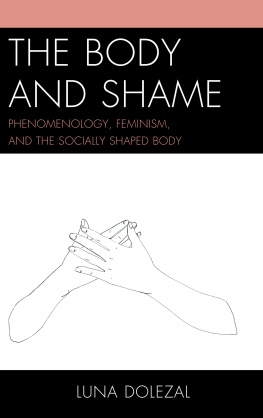




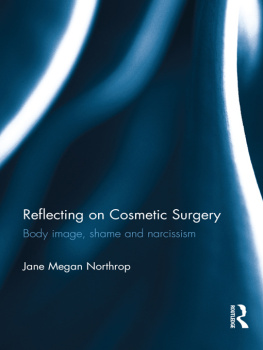
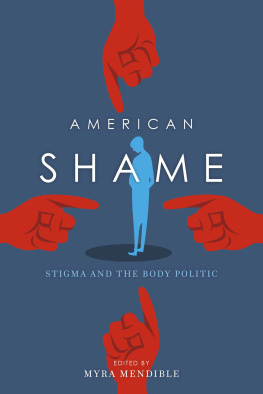



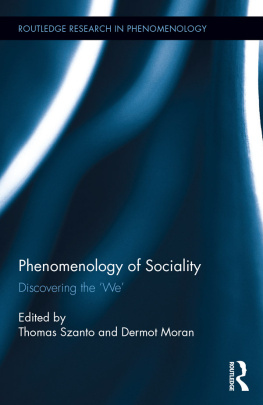
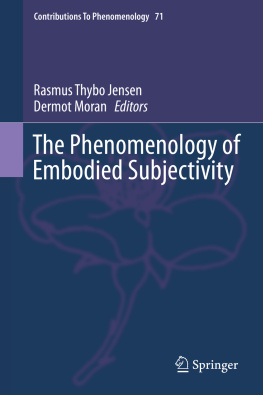
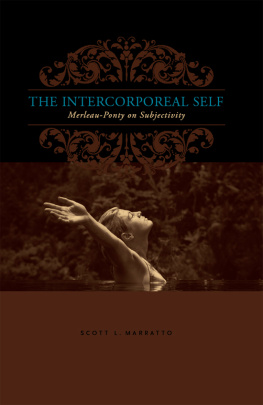
 TM The paper used in this publication meets the minimum requirements of American National Standard for Information Sciences Permanence of Paper for Printed Library Materials, ANSI/NISO Z39.48-1992.
TM The paper used in this publication meets the minimum requirements of American National Standard for Information Sciences Permanence of Paper for Printed Library Materials, ANSI/NISO Z39.48-1992.